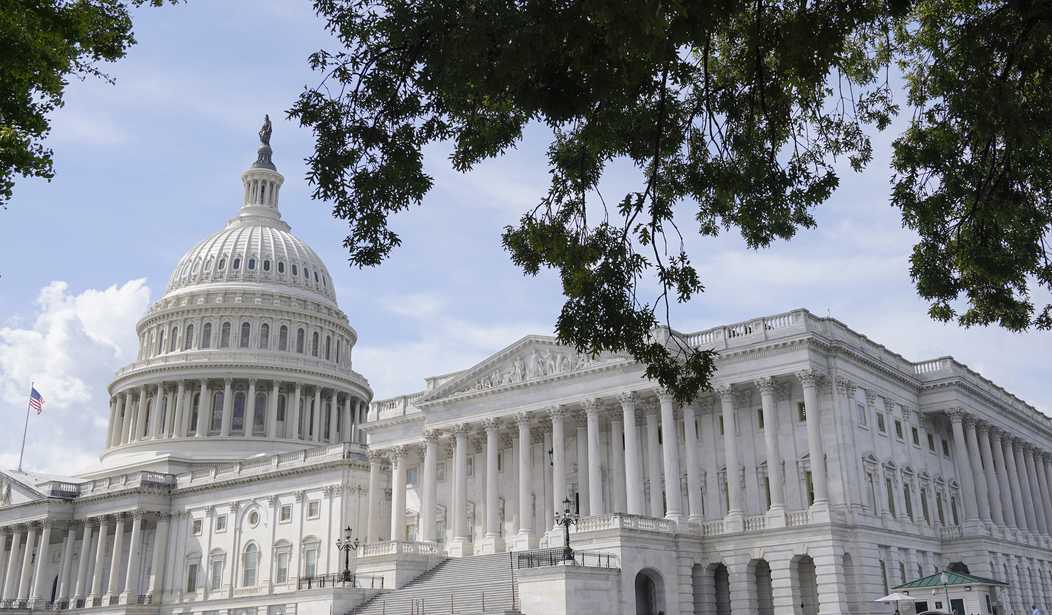America's greatness lies not in perfection but in her relentless pursuit of it. For nearly 250 years, this nation has strived to fully realize the revolutionary ideals laid out in its founding documents. While we have often fallen short, our capacity for self-reflection and renewal inspires hope and spurs improvement.
Let us hope the efforts of Donald Trump, Elon Musk and others to reassess the aspects of government that border the presidency are performed in that same spirit. Let us also hope that Congress steps up to the plate and engages in its own self-reflection.
For the past few decades, Congress has transformed its constitutional "power of the purse" from a tool of responsible governance into an instrument of fiscal destructiveness. The most visible sign is a national debt that just crossed the $36 trillion threshold, barely three months after reaching $35 trillion. This is nuts. This year's budget deficit is $1.9 trillion and will be $2.8 trillion in 10 years. Instead of practicing careful budgeting and oversight, Congress repeatedly relies on massive omnibus spending bills, often passed in haste without proper review.
The abdication of duty is bipartisan. Neither Democrats nor Republicans have shown genuine commitment to restoring fiscal responsibility. Basic oversight functions, like passing individual appropriations bills on schedule or conducting rigorous cost-benefit analyses, are regularly ignored. And, of course, very few in Congress want to take the steps needed to stabilize the major drivers of the government's future debt: Social Security, Medicare and Medicaid.
Beyond this cowardice, Congress' fiscal frivolity is visible everywhere. Take the issue of expired authorization. The newly created Department of Government Efficiency has already flagged "$516 billion to programs whose authorizations previously expired under federal law. Nearly $320 billion of that $516 billion expired more a decade ago."
Recommended
This, again, is nuts. It not only reveals that Congress doesn't care much about its own rules and oversight power -- if members want to continue spending on these programs, they should duly reauthorize them -- but shows that the government is way too big for Congress to handle.
Next, take the issue of improper payments. According to the Government Accountability Office, payments that "should not have been made or that were made in an incorrect amount" reached $236 billion last year. Since 2003, the total has been $2.7 trillion. Medicare and Medicaid each account for over $50 billion annually, while the Pandemic Unemployment Assistance program had $3.6 billion. GAO offers recommendations to address a small part of the problem, but Congress has failed to adopt them. Improper payments continue and even grow every year.
Congress also ignores large-scale fraud throughout the budget. GAO estimates the annual financial loss at "between $233 billion and $521 billion" based on data from 2018 through 2022. According to reports, the estimated annual fraud for Medicare and Medicaid was at least $100 billion in 2023.
No private-sector company would stay afloat were its officials to permit this level of fraud and waste. Yet the federal government suffers no consequences because neither we nor our representatives in Congress hold it accountable. Twenty-first century technology could likely prevent the vast majority of the fraud and improper payments. That may be the most effective use of DOGE, with all the engineers and geeks who can bring a precise, scientific approach.
Last but not least is the Department of Defense, which has failed its seventh audit since 2018. Its size, we're told, is the main reason why. It spent over $824 billion and employs 3.4 million service members and civilians deployed over many countries. In this case, Congress has demanded a clean audit -- by 2028. Here's to hoping.
I could go on, but in the end, the message is clear: Congress isn't doing its job.
The sheer size of the federal government has created a self-perpetuating vortex of dysfunction. The bureaucracy and scale of spending have grown so vast and complex that meaningful oversight has become nearly impossible. But while Congress cannot effectively monitor the thousands of programs, agencies and expenditures under its purview, by making only token attempts to live up to its constitutional responsibilities, it all but ensures even more waste, duplication and programs that continue long past their usefulness.
The only cure is to shrink the size of government. Trump is talking about it, but it's mostly in Congress' hands.























Join the conversation as a VIP Member